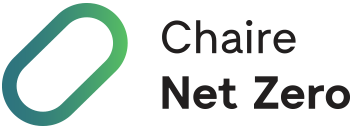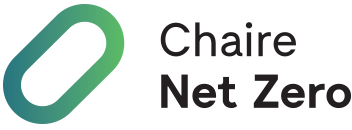Our calls for projects
Environmental life cycle assessment of quantum computing and application of quantum computing for life cycle assessment.
Description:
This PhD project is part of a research partnership with the Quantum Institute (IQ) of the University of Sherbrooke. High performance computing platforms have become essential today. In particular, they are used to support decisions with high social impact and the underlying technologies require more and more energy to meet our expectations. This expansion of systems generates a huge environmental footprint and exacerbates the fact that digital and social injustices are largely ignored by science and engineering research. In this sense, the impact of high performance computing on climate and societies has, on the whole, been the subject of a small number of studies, but, more importantly, their scope is still lacking a prospective perspective. This project aims to study an emerging paradigm, quantum computing technologies (QCTs), which have the potential to solve problems that are intractable with classical solutions, but also to reduce the environmental impact of computing. Understanding the environmental and social impacts of QCTs is crucial to compare them to current and future solutions.
Daily work:
The work will be carried out within an interdisciplinary team, in close collaboration with the partner. In addition, a part of your work is to communicate regularly with the partner on the progress of your project, to publish your results in peer- reviewed journals and to present them at international conferences.
Requirements:
Your qualifications should include:
A master’s degree in civil, environmental engineering or similar level of studies (e.g., master studies in physics or computer science) with excellent grades.
Interest in modelling and programming is an important advantage.
Your enrollment will be contracted according to standard regulations at Sherbrooke University.
The project will start as soon as possible or upon agreement.
PROJECT 2
Evaluation of the variability of the environmental profile of the life cycle of a building according to the Zero Carbon Building standard (BCZ).
Description:
Residential and commercial buildings have a significant environmental footprint in Canada by consuming 50% of the natural resources extracted and 33% of the energy. To reduce this footprint, several ecolabels and standards are proposed. The objective of this research project is to evaluate, through life cycle assessment (LCA), the variability of the environmental profile of a building certified with the new version of the BCZ Standard. This variability will be caused by the modification of different material configurations in the assessed building. The study will be based on a standard office building, which will be the “Base Case”. The BCZ score that can be achieved with the materials in each scenario will be evaluated. This study will quantify the intensity of environmental impacts over the life cycle of a building and the variation of these impacts based on the BCZ Standard criteria. These results will be crucial to allow the industry to orient their efforts in the choice of materials and in the application of the BCZ Standard.
Daily work:
The work will be carried out within the Chair, in close collaboration with the partner. In addition, an integral part of your work is to publish your results in peer-reviewed journals and to present them at international conferences.
Requirements:
Your qualifications should include:
Your qualifications must include a Bachelor’s degree in Civil, Environmental or similar engineering with excellent grades. An interest in modeling and programming would be an asset. Your admission will be subject to the standard rules of the University of Sherbrooke. The project will start as soon as possible or upon agreement.
PROJECT 3
How to “manage” the rebound effects of the electronics industry: an interdisciplinary perspective rooted in engineering and management.
Description:
Globally, approximately 53.6 million metric tons (Mt) of waste electrical and electronic equipment were generated in 2019, 20% more than in 2014. If nothing is done to improve existing policies and standards in advanced economies, this amount will exceed 74 Mt by 2030, including significant additional greenhouse gas (GHG) emissions into the atmosphere. Yet, despite the constant advancement of scientific knowledge on this critical issue, even the most sophisticated and well-informed approaches to e-waste governance seem to hit a wall, as these material flows are global, highly informal, and growing rapidly. In 2011, Quebec adopted an ambitious an Extended Producer Responsibility (EPR) regulation for this sector, and it is now time to take stock. This research project will aim to understand the broader phenomenon based on the Quebec case and its regulation’s partial results after more than ten years of implementation. More specifically, the project will aim (1) to model the rebound effects that explain at least in part the failure of e-waste governance approaches in Quebec and elsewhere, using a methodology based on life cycle assessment; and (2) to assess the current EPR policy based on modelling results and a phenomenology of the rebound effects here at play.
Daily work:
The work will be carried out within the Chair, in close collaboration with the project partners. The team will be composed of one student and two researchers. In addition, an integral part of your work will be to publish your results in peer-reviewed journals and present them at international conferences.
Requirements:
The candidate we seek has a graduate degree (M.Sc.) in engineering, management, environmental sciences, or a related field. He/she has an excellent academic record and can work in an autonomous fashion. Although the candidate does not necessarily have previous experience in environmental impact modeling, he/she is highly interested in developing this competency. The candidate’s admission file will be subject to the standard rules of the doctoral program chosen at the University (either the doctorate in civil engineering or the doctorate in business administration). The project will start as soon as possible or upon l agreement.
Application:
We look forward to receiving your online application including 1) a cover letter, 2) a resume, 3) transcripts, and 4) contact information for two references.
We will begin interviewing candidates as soon as enough applications are received. Applications will be accepted until the position is filled.


